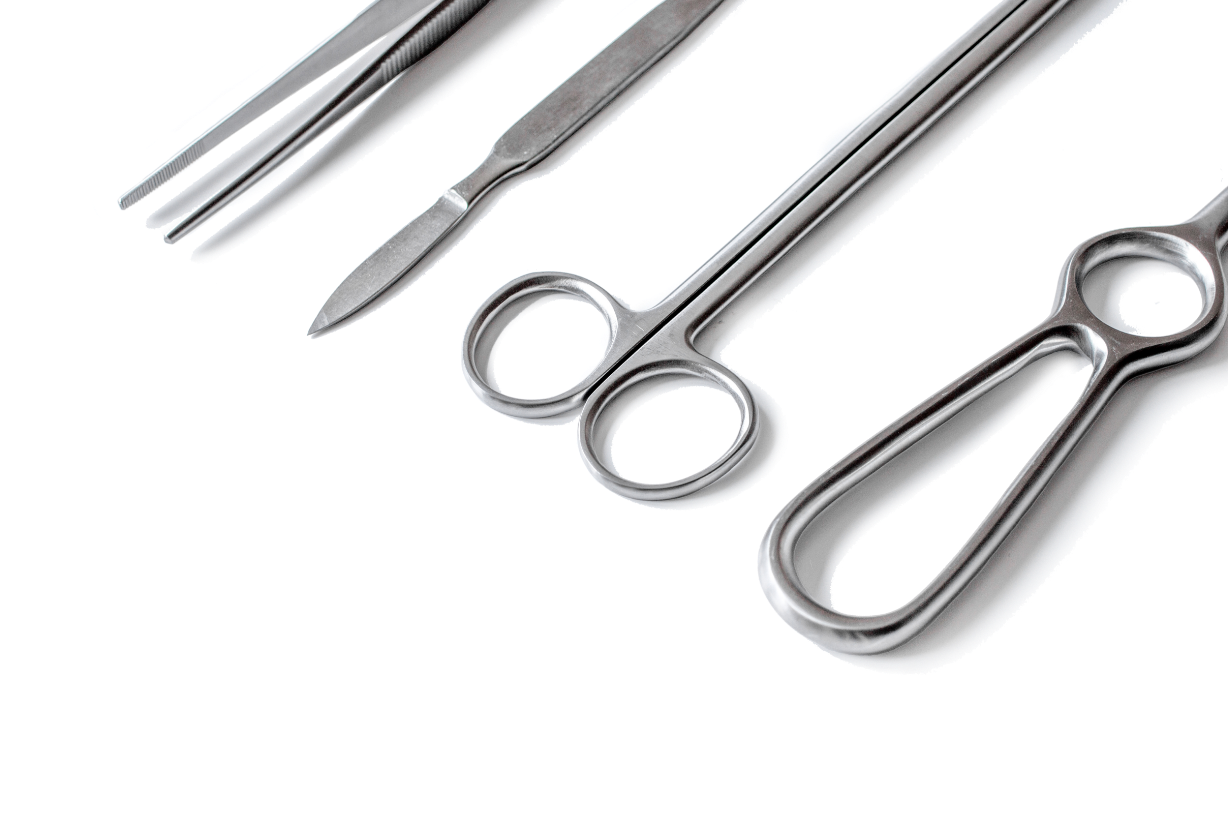Why Remove Them?
The average adult has 32 teeth; 16 teeth in the top jaw (maxilla) and 16 teeth in the lower jaw (mandible). Most people only have space for 28 teeth in their jaws. It can be painful when 32 try to fit in a mouth that is not large enough.
If the wisdom teeth are growing sideways or if they are partially through the gums, they can trap food debris and cause infections, gum disease, or cavities. Unfortunately these issues can also affect the neighbouring teeth. Pressure from erupting wisdom teeth can also cause pushing or crowding of other teeth. The most serious problem from impacted wisdom teeth is jaw cysts and tumours. These can cause destruction of the jaw bone and surrounding healthy teeth. Removal of the offending tooth usually resolves these problems. Early removal is recommended to avoid such future problems and to decrease the surgical risk associated with the procedure. Young patients typically have easier surgeries, faster recoveries, and lower rates of complications.
Our surgeons work closely with orthodontists and dentists in Manitoba to remove third molars to reduce these concerns, as well as decrease so the risk of relapse and dental movement after braces.
Our Process
With a proper oral examination and x-rays of the jaws, our surgeons can evaluate the position of the third molars and predict if problems may arise in the future. Patients are generally first evaluated by their family dentist, orthodontist, or by an oral and maxillofacial surgeon. The best time for evaluation depends on the patient but is usually some time between 14 and 21. If the teeth do not have enough space or have signs/symptoms of disease, it is advisable to remove them by 25.
All third molar surgery is performed on an outpatient basis in our certified facility. There is a variety of anesthesia options to complete the treatment which will be discussed by your surgeon. If you desire to be asleep for the surgery, we utilize board certified anesthesiologists (medical doctor who has completed an anesthesia residency program for 5+ years after medical school). They deliver the anesthetic in a safe comfortable environment.
The Surgery
During your consultation appointment, our surgeons will explain the process of your surgery. The anesthetic options will be presented to you (local anesthesia, oral sedation, IV sedation, or general anesthesia) as well as the risks and benefits of the surgery.
The in-office operating rooms are state of the art and equipped with all necessary medical monitoring systems.
Once the teeth are removed, the gums may be sutured. Our surgeons generally use used a dissolving stitch that will come out on its own typically within 3-7 days. These sutures do not require a follow up appointment to be removed. You will recover in our large recovery space with our registered nurse. Upon discharge, your postoperative kit will include postoperative instructions, prescriptions and a follow up appointment (if necessary). Antibiotics may be prescribed in some cases.
After-Care
General Anesthesia/Intervenous Sedation
Following General Anesthesia or Intervenous Sedation, you are considered impaired for 24 hours. Do not operate a motor vehicle or make important decisions during this time frame. We recommend no consumption of alcohol or drugs during this period, or while taking the prescribed medications.
The more frequent you rinse with salt water, the better
Following surgery, some pain is normal and expected. Take the prescription pain medication as you feel necessary, not exceeding the daily maximum dose. Over-the-counter Tylenol or Advil can be just as helpful. Your surgeon will discuss this with you.
A small amount of bleeding is normal after the surgery. Your surgeon will discuss with you whether stitches were used during the procedure. Non-dissolving stitches will be removed at a follow-up 10-14d post-surgery when we assess healing. If dissolving sutures (stitches) were placed, they will typically fall out after 4-7 days.
Smoking
Smoking should be avoided for at least 7 days post operatively. It is the primary cause of delayed wound healing and infection.
Brushing Teeth
Brushing your teeth is critical post-operatively to minimize pain and infection. Brush at least after every meal for 7 days. The cleaner you keep your mouth, the more comfortable you will be. You may use a small baby toothbrush with soft bristles and either warm water or toothpaste. Keep the brush on the teeth. If you bump into one of the dissolving sutures (stitches) you will not do any harm.
Mouth Wash
You will be prescribed a medicated oral rinse (chlorhexidine 0.12%) that you will begin to use 24 hours post-operatively. Do not use products such as Scope or Listerine. Warm salt water may be used in replacement of the chlorhexidine (1/4 teaspoon of salt dissolved in 250ml of warm water). The most frequent you rinse with salt water, the better.
Swelling
Swelling is completely normal and expected. It will peak 2-5 days post operatively then begin to subside. This may extend under the chin and down the neck. Ice packs are helpful on the cheek (20 minutes on, 20 minutes off) on the first postoperative day. Warm packs will be beneficial starting on day 2 post surgery.
Pain
Following jaw surgery, some pain is normal and expected. Take the prescription pain medication as you feel necessary, not exceeding the daily maximum dose. Over the counter Tylenol or Advil can be just as helpful. Dr. Scherle will discuss this with you.
Bleeding
A small amount of bleeding is normal after the surgery. You will have dissolving sutures (stitches) along the gum line that will fall out after 5-7 days.
Diet
Cold fluids are recommended for the first 2-3 days. Smoothies, protein shakes, ice cream or yogurt are good options. You may then progress your diet as you are comfortable. Food that is easily cut with a fork (fish, pasta, eggs) may be trialed, eventually working your way back to a normal diet as quickly as you are comfortable. Let your knife and fork do the chewing for you. Lots of small bites will make any meal manageable.
Bruising
Bruising may occur post operatively and can extend from the face, beneath the chin and onto the chest/breast. This is normal and should not cause alarm. It will resolve within 7-10 days.
Follow-Up
Please call the office should you experience any postoperative issues or have any questions. We will schedule a follow up visit at your convenience.



